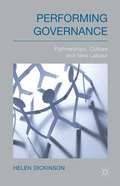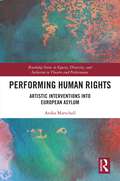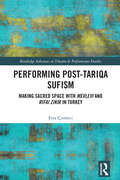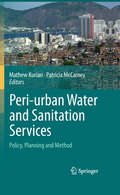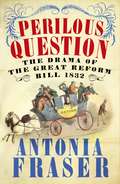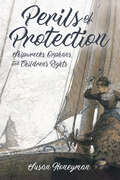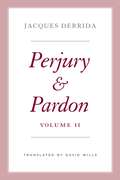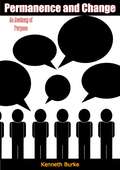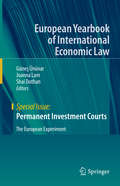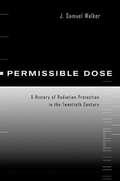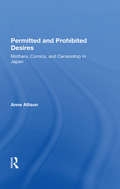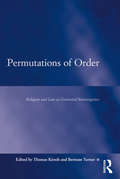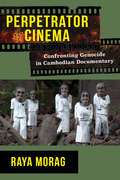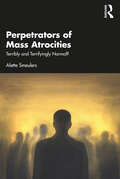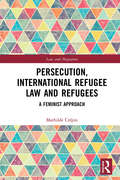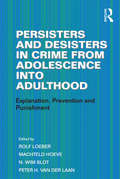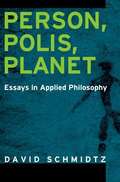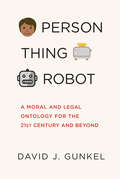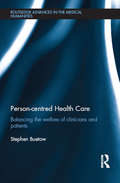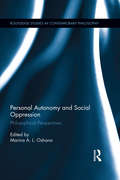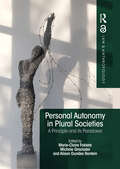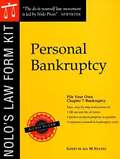- Table View
- List View
Performing Governance
by Helen DickinsonPerforming Governance sets out a new framework to assess the performance of partnerships and examines what these actually deliver. This is applied to three areas of New Labour's welfare policy; child safeguarding, urban regeneration and the modernisation of health and social care. This book contributes to understanding governance under New Labour.
Performing Human Rights: Artistic Interventions into European Asylum (Routledge Series in Equity, Diversity, and Inclusion in Theatre and Performance)
by Anika MarschallThis book enhances critical perspectives on human rights through the lens of performance studies and argues that contemporary artistic interventions can contribute to our understanding of human rights as a critical and embodied doing. This study is situated in the contemporary discourse of asylum and political art practices. It argues for the need to reimagine human rights as performative and embodied forms of recognition and practical honouring of our shared vulnerability and co-dependency. It contributes to the debate of theatre and migration, by understanding that contemporary asylum issues are complex and context specific, and that they do not only pertain to the refugee, migrant, asylum seeker or stateless person but also to privileged constituencies, institutional structures, forms of organisation and assembly. The book presents a unique mixed-methods approach that focuses equally on performance analyses and on political philosophy, critical legal studies and art history – and thus speaks to a range of politically interested scholars in all four fields.
Performing Post-Tariqa Sufism: Making Sacred Space with Mevlevi and Rifai Zikir in Turkey (Routledge Advances in Theatre & Performance Studies)
by Esra ÇizmeciThis ethnographic research project examines the generation of post-tariqa Tasavvuf (Sufism: a spiritual practice and philosophy recognised as the inner dimension of Islam) in a variety of private, semi-public, public, secular and sacred urban spaces in present-day Turkey. Through extensive field research in minority Sufi communities, this book investigates how devotees of specific orders maintain, adapt, mobilise, and empower their beliefs and values through embodied acts of their Sufi followers. Using an ethnographic methodology and theories derived from performance studies, Esra Çizmeci examines the multiple ways in which the post-tariqa Mevlevi and Rifai practice is formed in present-day Turkey, such as through the authority of the spiritual teacher; the individual and collective performance of Sufi rituals; nefs (self) training; and, most importantly, the practice of Sufi doctrines in everyday life through the production of sacred spaces. Drawing on the theories of performance, she examines how the Sufi way of living and spaces are created anew in the process of each devotee’s embodied action. This book is informed by theories in performance studies, anthropology, religious studies, and cultural studies and places current Sufi practices in a historical perspective.
Peri-urban Water and Sanitation Services
by Mathew Kurian Patricia MccarneyMore than 2.6 billion people in the developing world lack access to safe water and sanitation service. The Millennium Development Goal's (MDG) target is to halve the number of people without access to a sustainable source of water supply and connection to a sewer network by 2015. That target is unlikely to be met. If there is anything that can be learnt from European experience it is that institutional reform occurs incrementally when politically enfranchised urban populations perceive a threat to their material well-being due to contamination of water sources.
Perilous Medicine: The Struggle to Protect Health Care from the Violence of War
by Leonard RubensteinPervasive violence against hospitals, patients, doctors, and other health workers has become a horrifically common feature of modern war. These relentless attacks destroy lives and the capacity of health systems to tend to those in need. Inaction to stop this violence undermines long-standing values and laws designed to ensure that sick and wounded people receive care.Leonard Rubenstein—a human rights lawyer who has investigated atrocities against health workers around the world—offers a gripping and powerful account of the dangers health workers face during conflict and the legal, political, and moral struggle to protect them. In a dozen case studies, he shares the stories of people who have been attacked while seeking to serve patients under dire circumstances including health workers hiding from soldiers in the forests of eastern Myanmar as they seek to serve oppressed ethnic communities, surgeons in Syria operating as their hospitals are bombed, and Afghan hospital staff attacked by the Taliban as well as government and foreign forces. Rubenstein reveals how political and military leaders evade their legal obligations to protect health care in war, punish doctors and nurses for adhering to their responsibilities to provide care to all in need, and fail to hold perpetrators to account.Bringing together extensive research, firsthand experience, and compelling personal stories, Perilous Medicine also offers a path forward, detailing the lessons the international community needs to learn to protect people already suffering in war and those on the front lines of health care in conflict-ridden places around the world.
Perilous Question: The Drama of the Great Reform Bill 1832
by Lady Antonia FraserThe two-year revolution that totally changed how Britain is governed.Internationally bestselling historian Antonia Fraser's new book brilliantly evokes one year of pre-Victorian political and social history - the passing of the Great Reform Bill of 1832, an eventful and violent year that featured riots in Bristol, Manchester and Nottingham.The time-span of the book is from Wellington's intractable declaration in November 1830 that 'The beginning of reform is beginning of revolution' to 7 June 1832, when William IV reluctantly assented to the Great Reform Bill, under the double threat of the creation of 60 new peers in the House of Lords and the threat of revolution throughout the country. Wider themes of Irish and 'negro emancipation' underscore the narrative.The book is character driven; we learn of the Whig aristocrats prepared to whittle away their own power to bring liberty to the country, the all-too-conservative opposition who included the intransigent Duchess of Kent and Queen Adelaide and finally the 'revolutionaries' like William Cobbett, author of Rural Rides.These events led to a total change in the way Britain was governed, a two-year revolution that Antonia Fraser brings to vivid dramatic life.
Perilous Question: The Drama of the Great Reform Bill 1832
by Lady Antonia FraserInternationally bestselling historian Antonia Fraser's new book brilliantly evokes one year of pre-Victorian political and social history - the passing of the Great Reform Bill of 1832. For our inconclusive times, there is an attractive resonance with 1832, with its "rotten boroughs" of Old Sarum and the disappearing village of Dunwich, and its lines of most resistance to reform. This book is character-driven - on the one hand, the reforming heroes are the Whig aristocrats Lord Grey, Lord Althorp and Lord John Russell, and the Irish orator Daniel O'Connell. They included members of the richest and most landed Cabinet in history, yet they were determined to bring liberty, which whittled away their own power, to the country. The all-too-conservative opposition comprised Lord Londonderry, the Duke of Wellington, the intransigent Duchess of Kent and the consort of the Tory King William IV, Queen Adelaide. Finally, there were "revolutionaries" and reformers, like William Cobbett, the author of "Rural Rides".This is a book that features one eventful year, much of it violent. There were riots in Bristol, Manchester and Nottingham, and wider themes of Irish and "negro emancipation" underscore the narrative. The time-span of the book is from Wellington's intractable declaration in November 1830 that 'The beginning of reform is the beginning of revolution', to 7th June 1832, the date of the extremely reluctant royal assent by William IV to the Great Reform Bill, under the double threat of the creation of 60 new peers in the House of Lords and the threat of revolution throughout the country. These events led to a total change in the way Britain was governed, a two-year revolution that Antonia Fraser brings to vivid dramatic life.Read by Sean Barrett. Sean Barrett has narrated many television documentaries for the BBC and Discovery Channel, notably THE PEOPLE'S CENTURY, WALKING WITH BEASTS, and GREAT LIVES. As a member of the BBC Radio Rep, he has appeared in hundreds of radio plays, and played Father Gillespie in the BBC Worldservice / BBC7 serial WESTWAY throughout its eight year-run. As a film and television actor he has appeared in pieces as diverse as TWELFTH NIGHT and FATHER TED, and he is a doyen of audiobook reading, with acclaimed recordings of authors ranging from Chaucer to Beckett and in 2012 recorded Antony Beevor's THE SECOND WORLD WAR.(p) 2013 Orion Publishing Group
Perils of Protection: Shipwrecks, Orphans, and Children's Rights (Children's Literature Association Series)
by Susan HoneymanWinner of the Children’s Literature Association’s 2020 Honor Book AwardUnrecognized in the United States and resisted in many wealthy, industrialized nations, children’s rights to participation and self-determination are easily disregarded in the name of protection. In literature, the needs of children are often obscured by protectionist narratives, which redirect attention to parents by mythologizing the supposed innocence, victimization, and vulnerability of children rather than potential agency.In Perils of Protection: Shipwrecks, Orphans, and Children's Rights, author Susan Honeyman traces how the best of intentions to protect children can nonetheless hurt them when leaving them unprepared to act on their own behalf. Honeyman utilizes literary parallels and discursive analysis to highlight the unchecked protectionism that has left minors increasingly isolated in dwindling social units and vulnerable to multiple injustices made possible by eroded or unrecognized participatory rights.Each chapter centers on a perilous pattern in a different context: “women and children first” rescue hierarchies, geographic restriction, abandonment, censorship, and illness. Analysis from adventures real and fictionalized will offer the reader high jinx and heroism at sea, the rush of risk, finding new families, resisting censorship through discovering shared political identity, and breaking the pretenses of sentimentality.
Perils of the Seas and Inherent Vice in Marine Insurance Law
by Ayça UçarThe Supreme Court ruling in Global Process System Inc. v Syarikat Takaful Malaysia Berhad (The Cendor MOPU) created a shock wave in the London marine insurance market, as the Supreme Court decision changed the boundaries of doctrine with respect to the meaning of ‘perils of the sea’ and ‘inherent vice’. Both phrases play an important role in the insurance market, affecting both assureds and insurers and their respective interests under all classes of marine insurance policies. This book reviews the origin of the clauses ‘perils of the sea’ and ‘inherent vice’ by tracing back through the early cases in order to understand the origin and noting how and why the changes occurred. It will examine how the law has been developed in the recent cases and discuss whether the Supreme Court case The Cendor MOPU has overruled the previous cases in terms of the clauses ‘inherent vice’ and ‘perils of the sea’. Considering the impact of The Cendor MOPU decision with respect to the Marine Insurance Act 1906, as well as the standard Institute Cargo Clauses, it evaluates whether the decision is consistent with these things and discusses the effect of the decision on recent cases and on the insurance market.
Perjury and Pardon, Volume II (The Seminars of Jacques Derrida)
by Jacques DerridaAn exploration of the political dimensions of forgiveness and repentance from Jacques Derrida. Perjury and Pardon is a two-year seminar series given by Jacques Derrida at the École des hautes études en sciences sociales in Paris during the late 1990s. In these sessions, Derrida focuses on the philosophical, ethical, juridical, and political stakes of the concept of responsibility. His primary goal is to develop what he calls a “problematic of lying” by studying diverse forms of betrayal: infidelity, denial, false testimony, perjury, unkept promises, desecration, sacrilege, and blasphemy. This volume covers the seminar’s second year when Derrida explores the political dimensions of forgiveness and repentance. Over eight sessions, he discusses Hegel, Augustine, Levinas, Arendt, and Benjamin as well as Bill Clinton’s impeachment and Nelson Mandela and Desmond Tutu’s testimonies before the Truth and Reconciliation Commission. The seminars conclude with an extended reading of Henri Thomas’s 1964 novel Le Parjure.
Permanence and Change: An Anatomy of Purpose
by Kenneth BurkePermanence and Change: An Anatomy of Change, written by American literary theorist Kenneth Burke, was first published in 1935, at the height of the Great Depression. Burke followed this with Attitudes Toward History followed just two years later. His texts proved to be revolutionary in the theory of communication, and, as classics, retain their surcharge of energy.Permanence and Change: An Anatomy of Change treats human communication in terms of ideal cooperation, and in this book, Burke establishes, in ground-breaking fashion, that form permeates society, just as it does poetry and the arts.This present volume is the Second Edition, first published in 1954, and includes an Introduction by Hugh Dalziel Duncan.“Unquestionably the most brilliant and suggestive critic now writing in America.”—W. H. Auden“One of the truly speculative American thinkers of his era.”—Malcolm Cowley“The foremost critic of our time and perhaps the greatest critic since Coleridge.”—Stanley Edgar Hyman“What Burke has done better than anyone else is to find a way of connecting literature to life without reducing either. He’s had far less attention than he deserves because he’d been so far ahead of his time. But he’s one of the major minds of the twentieth century, and he’s sure to be read in the future.”—Wayne Booth
Permanent Investment Courts: The European Experiment (European Yearbook of International Economic Law)
by Shai Dothan Güneş Ünüvar Joanna LamThis special issue focuses on the opportunities and challenges connected with investment courts. The creation of permanent investment courts was first proposed several decades ago, but it has only recently become likely that these proposals will be implemented. In particular, the European Commission has pushed for a court-like mechanism to resolve investment disputes in various recent trade and investment negotiations. Such a framework was included in some free trade agreements (FTAs) and investment protection agreements (IPAs) the European Union (EU) signed or negotiated with Vietnam, Singapore, Mexico and Canada. While it was shelved long before the publication of this Special Issue, the European Commission had also formally proposed a court system during the negotiations for the Transatlantic Trade and Investment Partnership (TTIP) agreement with the United States. The issue of a Multilateral Investment Court (MIC) has also been prevalent at the Working Group III proceedings of the UNCITRAL on investor-State dispute settlement reform, attracting scholarly and public attention.Will these developments lead to the creation of permanent investment courts? How will such courts change the future of international investment law? Will they bring about a real institutional change in adjudicatory mechanisms? Will they introduce a 'hybrid' system, which borrows important characteristics from both arbitration and institutional methods of international adjudication? How will the enforcement mechanisms work, and under which rules of ethics will its adjudicators function and exercise their duties? This special issue brings together leading scholars sharing a common interest in investment courts to address these questions.
Permissible Dose: A History of Radiation Protection in the Twentieth Century
by J. Samuel WalkerA concise and readable guide to the historical development of radiation protection standards by federal government agencies from the Manhattan Project to the present.
Permitted And Prohibited Desires: Mothers, Comics, And Censorship In Japan
by Anne AllisonDesire is both of and beyond the everyday. In an ad for running shoes, for example, the figure of a man jogging at dawn on the Serengeti Plain both evokes a fantasyof escape and invokes a disciplinary norm to stay fit. The bottom line for thead, of course, is to create a desire to consume, the promise being that with thepurchase of these shoes, the consumer can realize yet also transcend the daily exhortationto perform.To say this differently, there is something both real and phantasmic about desire.Yet this notion seems contradictory. Isn't there a difference between the desireto be fit, for example, which is realizable, realistic, and, in these senses, realand the desire to escape routine everydayness, which, for most of us, is inescapablemost of the time? But is exercise real or phantasmic? Certainly noteveryone works out, and even those who make exercise a part of their reality maydo so in order to pursue a fantasy about themselves. And are escapes from dailyroutines phantasmic or real? An escape from the everyday is far more realizablefor some people than even fitness. But here too what is fantasy blends into (andbecomes indistinguishable from) the real: A vacation away from work may be ameans of ensuring a higher level of work performance when one returns.
Permutations of Order: Religion and Law as Contested Sovereignties (Law, Justice And Power Ser.)
by Thomas G. KirschPermutations of Order makes an innovative and important contribution to current discussions about the relationship between religion and law, bringing together theoretically informed case studies from different parts of the world, relating to various types of politico-legal settings and religions. This volume also deals with contemporary legal/religious transfigurations that involve "permutations," meaning that elements of "legal" and "religious" acts of ordering are at times repositioned within each realm and from one realm to the other. These permutations of order in part result from the fact that, in ethnographic settings like those examined here, "legal" and "religious" realms are relational to-and in certain cases even constitutive of-each other and they result in categoric transpositions and new social positionalities through which, among other things, "the legal" and "the religious" are blended. Permutations of Order is a work that transcends convention, identifies new and theoretically overarching themes and will be of strong interest to researchers and policy-makers seeking a comparative focus on the intersections and disjunctions of religion and law.
Perpetrator Cinema: Confronting Genocide in Cambodian Documentary (Nonfictions)
by Raya MoragPerpetrator Cinema explores a new trend in the cinematic depiction of genocide that has emerged in Cambodian documentary in the late twentieth- and early twenty-first centuries. While past films documenting the Holocaust and genocides in Yugoslavia, Rwanda, and elsewhere have focused on collecting and foregrounding the testimony of survivors and victims, the intimate horror of the autogenocide enables post–Khmer Rouge Cambodian documentarians to propose a direct confrontation between the first-generation survivor and the perpetrator of genocide. These films break with Western tradition and disrupt the political view that reconciliation is the only legitimate response to atrocities of the past. Rather, transcending the perpetrator’s typical denial or partial confession, this extraordinary form of “duel” documentary creates confrontational tension and opens up the possibility of a transformation in power relations, allowing viewers to access feelings of moral resentment.Raya Morag examines works by Rithy Panh, Rob Lemkin and Thet Sambath, and Lida Chan and Guillaume Suon, among others, to uncover the ways in which filmmakers endeavor to allow the survivors’ moral status and courage to guide viewers to a new, more complete understanding of the processes of coming to terms with the past. These documentaries show how moral resentment becomes a way to experience, symbolize, judge, and finally incorporate evil into a system of ethics. Morag’s analysis reveals how perpetrator cinema provides new epistemic tools and propels the recent social-cultural-psychological shift from the era of the witness to the era of the perpetrator.
Perpetrators of Mass Atrocities: Terribly and Terrifyingly Normal?
by Alette SmeulersThe 9/11 attacks, as well as the ones in Madrid, London, Paris and Brussels; the genocides in Nazi Germany, Rwanda and Cambodia; the torture in dictatorial regimes; the wars in former Yugoslavia, Syria and Iraq and currently in Ukraine; the sexual violence during periods of conflict, all make us wonder: why would anyone do something like that? Who are these people? Drawing on 30 years of research, in this book Alette Smeulers explores the perpetrators of mass atrocities such as war crimes, crimes against humanity, genocide and terrorism. Examining questions of why people kill and torture and how mass atrocities can be explained, Smeulers presents a typology of perpetrators, with different ranks, roles and motives. Devoting one chapter to each type of perpetrator, the book combines insights from academic research with illustrative case studies of well-known perpetrators, from dictators to middlemen, to lower ranking officials and terrorists. Their stories are explored in depth as the book examines their behaviour and motivation. Perpetrators of Mass Atrocities thus provides a comprehensive understanding of the causes of extreme mass violence. Such knowledge not only can help the international criminal justice system to be able to attribute blame in a fairer way but can also assist in preventing such atrocities being committed on the current scale. Perpetrators of Mass Atrocities is essential reading for all those interested in war crimes, genocide, terrorism and mass violence
Persecution, International Refugee Law and Refugees: A Feminist Approach (Law and Migration)
by Mathilde CrépinThis book explores the ambit of the notion of persecution in international law and its relevance in the current geopolitical context, more specifically for refugee women. The work analyses different models for interpreting the notion of persecution in international refugee law through a comparative lens. In particular, a feminist approach to refugee law is adopted to determine to what extent the notion of persecution can apply to gender related forms of violence and what are the challenges in doing so. It proposes an interpretive model that would encourage decision makers to interpret the notion of persecution in a manner that is sufficiently protective and relevant to the profiles of refugees in the 21st century, most particularly to refugee women. The book will be of interest to academics and students in the field of public international law, international human rights law, international humanitarian law, immigration law, European law, and refugee law as well as those working in the areas of international relations.
Persisters and Desisters in Crime from Adolescence into Adulthood: Explanation, Prevention and Punishment
by Machteld Hoeve Peter H. LaanToo many juvenile delinquents persist in their offending into adulthood. They constitute a major burden for individual victims, for businesses and the justice system, all contributing to the total cost of crime for society. Focusing on the transition between juvenile offending and adult crime, this book examines research based on Dutch, European and North-American studies on the persistence and discontinuity of offending between late adolescence and early adulthood. Presenting empirical studies showing why persistence or discontinuity take place, the book provides up-to-date information on preventive and remedial interventions to promote discontinuity of offending amongst young adults. From the same team who produced 'Tomorrow's Criminals', this book will be a valuable resource for criminologists, criminal justice professionals, psychologists, sociologists, and psychiatrists interested in juvenile and young adult offenders, as well as those interested in what makes career criminals and youth who reform.
Person, Polis, Planet: Essays in Applied Philosophy
by David Schmidtz<p>This volume collects thirteen of David Schmidtz's essays on the question of what it takes to live a good life, given that we live in a social and natural world. Part One defends a non-maximizing conception of rational choice, explains how even ultimate goals can be rationally chosen, defends the rationality of concern and regard for others (even to the point of being willing to die for a cause), and explains why decision theory is necessarily incomplete as a tool for addressing such issues. <p>Part Two uses the tools of analytic philosophy to explain what we can do to be deserving ,what is wrong with the idea that we ought to do as much good as we can, why mutual aid is good, but why the welfare state does not work as a way of institutionalizing mutual aid, and why transferring wealth from those who need it less to those who need it more can be a bad idea even from a utilitarian perspective. Most ambitiously, Part Two offers an overarching, pluralistic moral theory that defines the nature and limits of our obligations to each other and to our individual selves. <p>Part Three discusses the history and economic logic of alternative property institutions, both private and communal, and explains why economic logic is an indispensable tool in the field of environmental conflict resolution. In the final essay, Schmidtz brings the volume full circle by considering the nature and limits of our obligations to nonhuman species, and how the status of nonhuman species ought to enter into our deliberations about what sort of life is worth living.</p>
Person, Thing, Robot: A Moral and Legal Ontology for the 21st Century and Beyond
by David J. GunkelWhy robots defy our existing moral and legal categories and how to revolutionize the way we think about them.Robots are a curious sort of thing. On the one hand, they are technological artifacts—and thus, things. On the other hand, they seem to have social presence, because they talk and interact with us, and simulate the capabilities commonly associated with personhood. In Person, Thing, Robot, David J. Gunkel sets out to answer the vexing question: What exactly is a robot? Rather than try to fit robots into the existing categories by way of arguing for either their reification or personification, however, Gunkel argues for a revolutionary reformulation of the entire system, developing a new moral and legal ontology for the twenty-first century and beyond.In this book, Gunkel investigates how and why efforts to use existing categories to classify robots fail, argues that &“robot&” designates an irreducible anomaly in the existing ontology, and formulates an alternative that restructures the ontological order in both moral philosophy and law. Person, Thing, Robot not only addresses the issues that are relevant to students, teachers, and researchers working in the fields of moral philosophy, philosophy of technology, science and technology studies (STS), and AI/robot law and policy but it also speaks to controversies that are important to AI researchers, robotics engineers, and computer scientists concerned with the social consequences of their work.
Person-centred Health Care: Balancing the Welfare of Clinicians and Patients (Routledge Advances in the Medical Humanities)
by Stephen BuetowPerson-centred health care is increasingly endorsed as a key element of high-quality care, yet, in practice, it often means patient-centred health care. This book scrutinizes the principle of primacy of patient welfare, which, although deeply embedded in health professionalism, is long overdue for critical analysis and debate. It appears incontestable because patients have greater immediate health needs than clinicians and the patient-clinician encounter is often recognized as a moral enterprise as well as a service contract. However, Buetow argues that the implication that clinician welfare is secondary can harm clinicians, patients and health system performance. Revaluing participants in health care as moral equals, this book advocates an ethic of virtue to respect the clinician as a whole person whose self-care and care from patients can benefit both parties, because their moral interests intertwine and warrant equal consideration. It then considers how to move from values including moral equality in health care to practice for people in their particular situations. Developing a genuinely inclusive concept of person-centred care – accepting clinicians as moral equals – it also facilitates the coalescence of patient-centred care and evidence-based health care. This reflective and provocative work develops a constructive alternative to the taken-for-granted principle of primacy of patient welfare. It is of interest to students and academics in the health and caring sciences, philosophy, ethics, medical humanities and health management.
Personal Autonomy and Social Oppression: Philosophical Perspectives (Routledge Studies in Contemporary Philosophy)
by Marina A.L. OshanaPersonal Autonomy and Social Oppression addresses the impact of social conditions, especially subordinating conditions, on personal autonomy. The essays in this volume are concerned with the philosophical concept of autonomy or self-governance and with the impact on relational autonomy of the oppressive circumstances persons must navigate. They address on the one hand questions of the theoretical structure of personal autonomy given various kinds of social oppression, and on the other, how contexts of social oppression make autonomy difficult or impossible.
Personal Autonomy in Plural Societies: A Principle and its Paradoxes (Law and Anthropology)
by Alison Dundes Renteln Marie-Claire Foblets Michele GraziadeiThis volume addresses the exercise of personal autonomy in contemporary situations of normative pluralism. In the Western liberal tradition, from a strictly legal and theoretical perspective the social individual has the right to exercise the autonomy of his or her will. In a context of legal plurality, however, personal autonomy becomes more complicated. Can and should personal autonomy be recognized as a legal foundation for protecting a person’s freedom to renounce what others view as his or her fundamental ‘human rights’? This collection develops an interdisciplinary conceptual framework to address these questions and presents empirical studies examining the gap between the principle of personal autonomy and its implementation. In a context of cultural diversity, this gap manifests itself in two particular ways. First, not every culture gives the same pre-eminence to personal autonomy when examining the legal effects of an individual’s acts. Second, in a society characterized by ‘weak pluralism’, the legal assessment of personal autonomy often favours the views of the dominant majority. In highlighting these diverse perspectives and problematizing the so-called ‘guardian function’ of human rights, i.e., purporting to protect weaker parties by limiting their personal autonomy in the name of gender equality, fair trial, etc., this book offers a nuanced approach to the principle of autonomy and addresses the questions of whether it can effectively be deployed in situations of internormativity and what conditions must be met in order to ensure that it is not rendered devoid of all meaning.
Personal Bankruptcy (2nd edition)
by Stephen R. EliasThis convenient personal bankruptcy kit provides step-by-step instructions and all the forms necessary to file for Chapter 7 bankruptcy. It explains how to: * assess the short and long-term effects of bankruptcy * obtain an "automatic stay" to keep creditors at bay * cancel or reschedule debts * appear in bankruptcy court * decide whether to see a lawyer and more. This second edition has been completely revised and updated. Good in all 50 states.
